Chemical Blog Posts

Modeling Hydrodealkylation in a Membrane Reactor
Hydrodealkylation is a hydrogen-intensive process. We demonstrate using the thermodynamics modeling features in the COMSOL® software to analyze this process in a membrane reactor.
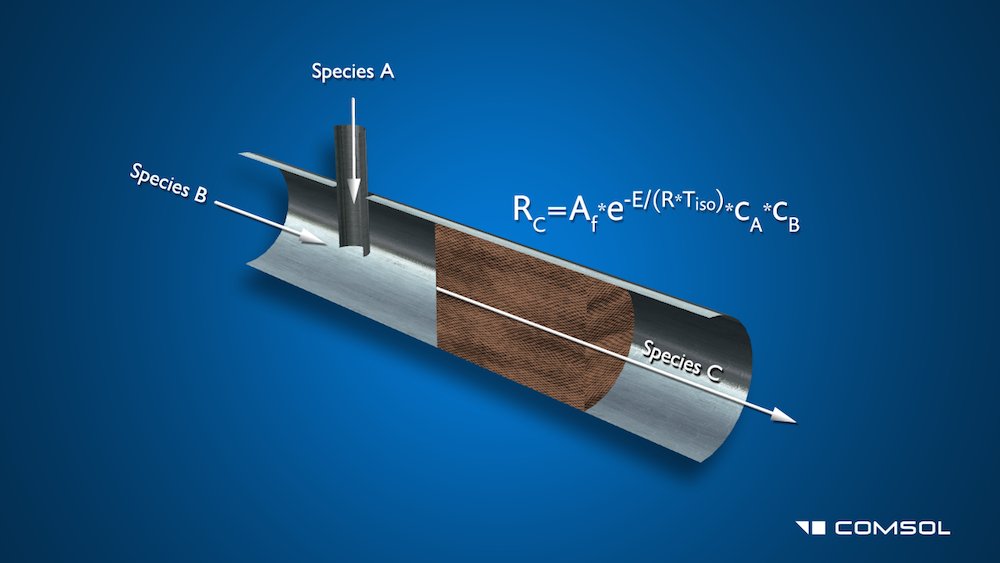
Modeling Reacting Flow in Porous Media
This blog post and embedded tutorial video demonstrate what inputs are required and what results you can obtain when modeling a porous reactor in COMSOL Multiphysics®.
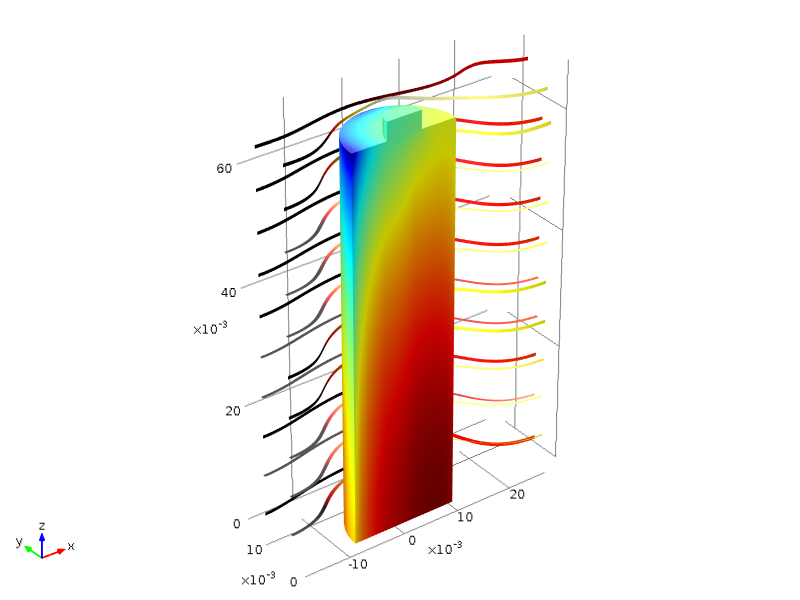
Accounting for Heat in the Design of Lithium-Ion Batteries
Heat transfer is an important phenomenon to consider when designing a lithium-ion battery. See how multiphysics simulation can help ensure a safe and efficient Li-ion battery design.
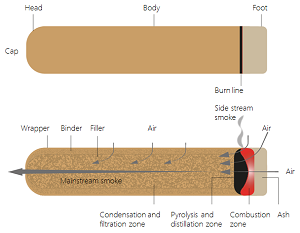
Sometimes a Cigar Is More Than Just a Cigar
Are you a casual stogie fan? A cigar aficionado? We show off a simple model of a cigar to study the temperature distribution of the smoke and concentration of oxygen.
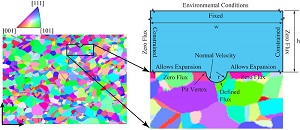
A Strategy for Designing Corrosion-Resistant Materials
Engineers at the Naval Research Laboratory in Washington, D.C., turned to multiphysics simulation to better understand the fundamental mechanisms behind corrosion damage. Get the full story >>
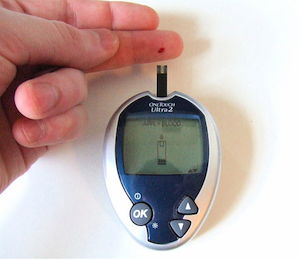
Modeling Electrochemistry for Managing Diabetes
An estimated 350 million people worldwide are living with diabetes. By modeling electrochemical processes, biomedical engineers can analyze and optimize the glucose sensing process.
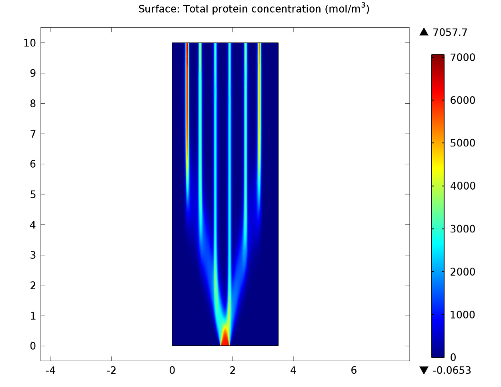
Isoelectric Focusing and the Migration of Chemical Species
Isoelectric focusing is a type of electrophoresis used by researchers to identify small chemical differences between molecules. Learn about using the COMSOL® software to analyze this process.
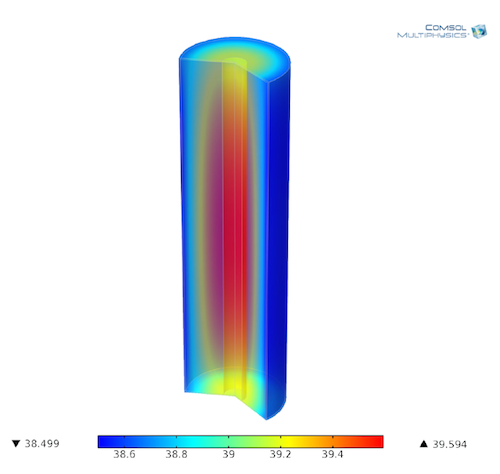
Modeling Lithium-Ion Batteries for Quality and Safety Assurance
Intertek Semko AB assesses more than 20,000 lithium-ion batteries per year. Learn about how they use COMSOL Multiphysics® to understand and analyze their battery and fuel cell designs.
